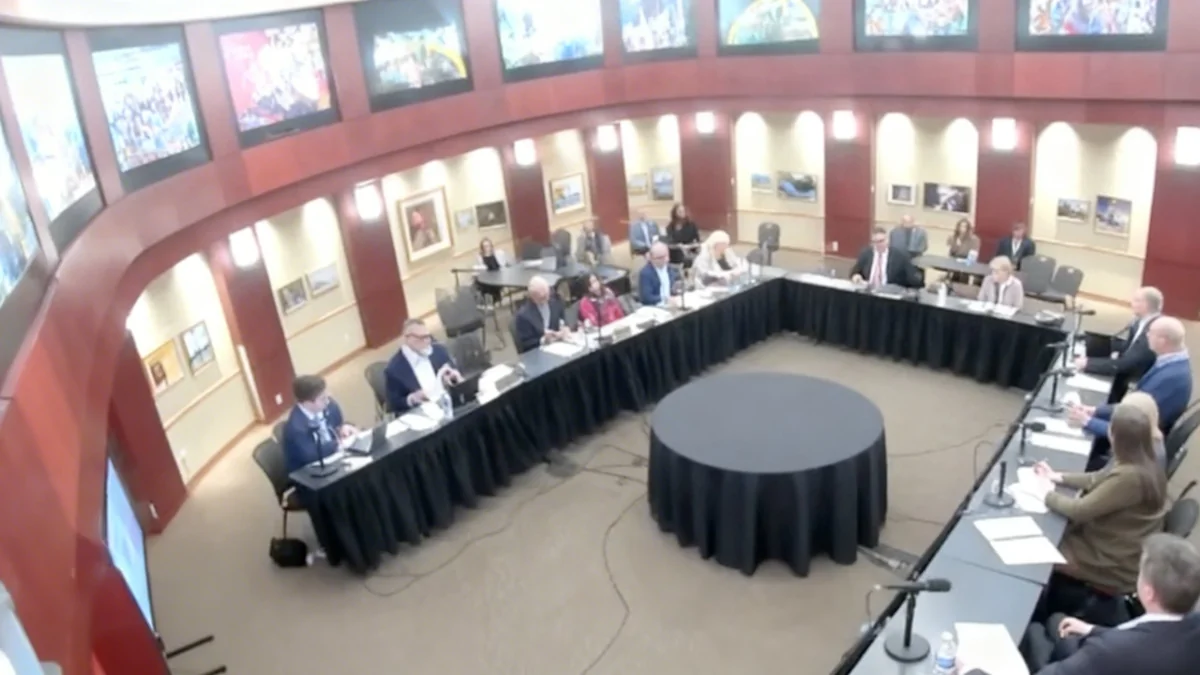A new lawsuit claims Indiana University violated constitutional rights by firing a student newspaper adviser and attempting to control content. The legal action, filed in the U.S. District Court of Southern Indiana, seeks monetary damages and the reinstatement of Jim Rodenbush, the former director of student media.
The lawsuit contends that the university's actions are part of a broader effort to suppress free speech on campus, linking recent administrative decisions to alleged interference from state government officials.
Key Takeaways
- Former IU student media director Jim Rodenbush is suing the university for alleged First Amendment violations.
- The lawsuit claims IU pressured Rodenbush to control student newspaper content and fired him in retaliation.
- The complaint links IU's actions to broader efforts by the university and state government to limit free speech.
- The Indiana Daily Student's print editions were halted shortly after Rodenbush's termination.
- Free speech organizations have condemned IU's handling of student media.
Adviser Fired Amid Content Dispute
Jim Rodenbush, who served as IU's director of student media, was terminated on October 14. This decision followed increasing tension with university administrators regarding the content published in the Indiana Daily Student (IDS), the student newspaper.
According to his termination letter, Media School Dean David Tolchinsky cited Rodenbush's "lack of leadership and ability to work in alignment with the University's direction for the Student Media Plan" as the reason for his dismissal.
Jon Little, the attorney representing Rodenbush, argues that the university violated Rodenbush's First Amendment rights. He states that administrators tried to force Rodenbush to control the newspaper's content. The subsequent firing, Little claims, constitutes another First Amendment violation as an act of retaliation.
Key Fact
The lawsuit was filed on October 30 in the U.S. District Court of Southern Indiana, seeking Rodenbush's job back and a ruling that the university's actions are illegal under both U.S. and Indiana constitutions.
Pressure to Control Student Journalism
Rodenbush has described a pattern of pressure from school administrators to influence the content of the IDS. He reported that officials wanted him to exert control over what appeared in the seven print editions published each semester.
The complaint specifically mentions an incident in spring 2025 where IU Media School Associate Dean Galen Clavio expressed frustration. This frustration reportedly stemmed from the inclusion of traditional news stories in the print editions.
Later, during a meeting this fall, Rodenbush and Clavio reportedly clashed. Rodenbush argued that Clavio's demands would force him to violate the established charter between the IDS and the university.
"James Rodenbush was fired because he refused to toe the party line, and because he refused to force the student journalists he supervised to kowtow to the edicts of the Governor (Mike) Braun-installed University Trustees," the complaint states.
Following this contentious meeting, Rodenbush filed a human resources complaint. He alleged he was "berated" in front of his colleagues. In an October 9 meeting with Dean Tolchinsky, Rodenbush reiterated that the university's demands violated the First Amendment.
Tolchinsky reportedly responded by stating that the university expected Rodenbush to act as a traditional newspaper publisher, controlling content. If Rodenbush disagreed, Tolchinsky suggested, "then student media would need to be reevaluated."
Background on IDS
The Indiana Daily Student (IDS) has a long history as the independent student newspaper of Indiana University. It serves as a vital source of news and information for the campus community, with a tradition of journalistic independence.
Print Editions Halted After Firing
Less than 24 hours after Rodenbush's termination, the university ordered the IDS to cease its print newspapers. This included a scheduled homecoming special edition. While print editions stopped, the IDS continues to publish content on its website.
University administrators have previously cited a new student media business plan and the paper's financial deficit as reasons for cutting print operations. However, several organizations have voiced strong objections to these actions.
The Student Press Law Center, the Foundation for Individual Rights and Expression (FIRE), and PEN America have all condemned IU's decisions. They view these actions as a form of censorship.
The Reporters Committee for Freedom of the Press, representing the IDS, sent a letter to the university. This letter described IU's handling of the student paper as "ill-advised, unconstitutional, and appear(s) to be aimed at suppressing core press and speech rights."
Broader Allegations of Speech Suppression
The lawsuit extends beyond Rodenbush's case, painting a larger picture of alleged First Amendment interference at Indiana University. The complaint suggests IU has actively sought to limit free speech for over a year through various means.
Specifically, the lawsuit references two instances during the Palestine solidarity encampment in 2024. It mentions a likely unconstitutional "expressive activity" policy and the presence of Indiana State Police. Police arrested protesters and positioned a sniper atop the student union during these events.
Last year, a national First Amendment organization ranked IU as the worst public university in the country for protecting free speech on campus. This ranking largely cited the university's response to the encampment.
The complaint also alleges that the Indiana state government has "helped along (IU's) mission to censor and control speech." It points to a last-minute addition to the biennial state budget. This addition granted Governor Mike Braun the power to select all IU trustees.
Jon Little believes the university's actions are heavily tied to corporate interests and donors. While previous reporting has not found direct links between the IDS situation and the governor's office, the lawsuit aims to explore these connections through discovery.
Little poses a significant question for the district court: "Are (the courts) going to support freedom of the press, or are we going to support the corporate agenda of the Braun administration and his puppet at IU Pam Whitten?"
Beyond legal avenues, Little has called for IU faculty and staff to consider a general strike. He believes this is "the only weapon we have left" to pressure the university. He suggested that IU might not honor a court decision without such internal pressure.
- Percentage of affected students: Thousands of IU students rely on the IDS for campus news.
- Number of print editions halted: Seven per semester, plus special editions.
- Years of alleged interference: Over one year, according to the lawsuit.





